Prof yang sama lah suatu masa dulu dikatakan Prof Kangkung dengan memperkenalkan teori yang Tanah Melayu ini tidak pernah dijajah..Tapi itulah Zainal Kling.. anak Kling yang cuba menjuarai perjuangan Melayu.. Pelik aku dengan fenomena Ketuanan Melayu hari ini.. tidak salah jadi anak kling, anak mamak, anak pak Syed untuk mengaku sebagai Melayu.. tapi malu lah sikit kalau mahu menjadi juara Melayu.. Islam tak ajar semua ini..
Mereka yang memainkan sentimen perkauman Agama dan kaum yang selalu menjerit melayu ini bukan lah melayu tulen, tetapi dari kalangan bani Marican..bani Maidin dan bani Kling.. Kadang2 timbul tanda tanya, Tak malu kah mereka ini menjerit soal ketuanan melayu? Sampaikan hari ini pun, keturunan Malabari pun merayu mahu menyertai kelompok Melayu untuk diiktiraf sebagai Ahlul Bayt Bani Melayu... hari ini kalangan mereka ini lebih Melayu dari Melayu..
Kita tak minta untuk dilahirkan sebagai Melayu , India mahupun cina.. Kerana kejadian kita bersuku suku, Kabilah, berbeza warna kulit dan bahasa dengan tujuan kenal mengenal disamping ianya sebagai tanda kekuasan Allah.. sebagaimana firman Allah..
وَمِنْ آيَاتِهِ خَلْقُ السَّمَاوَاتِ وَالْأَرْضِ وَاخْتِلَافُ أَلْسِنَتِكُمْ وَأَلْوَانِكُمْ ۚ إِنَّ فِي ذَٰلِكَ لَآيَاتٍ لِلْعَالِمِينَ..
" Dan di antara tanda-tanda kekuasaan-Nya ialah menciptakan langit dan bumi dan berlain-lainan bahasamu dan warna kulitmu. Sesungguhnya pada yang demikan itu benar-benar terdapat tanda-tanda bagi orang-orang yang mengetahui... " (Surah Ar-Rum ayat 22)
Itu sebabnya perjuangan sebahagian dari mereka adalah mencari kemuliaan dengan Melayu.. mencari kemuliaan dengan gelaran bumiputera.. akhirnya gelaran Datuk, Tan Sri, Datuk seri yang dulunya gelaran bagi pembesar Melayu.. hari ini jadi gelaran yang digilai ramai.. daripada Ulama yang membeli gelaran Datuk sampai kepada kesultanan Indonesia..begitu juga Tauke Tauke Cina yang sanggup berhabis ratusan ribu hanya untuk memiliki gelaran gelaran ini.... pada mereka gelaran ini akan menjadikan mereka lebih mulia...
Kalau nak kan kemuliaan.. Bukan dengan kita menjerit soal maruah dan ketuanan Melayu.. Tetapi dengan Islam.. walaupun aku Melayu.. dilahirkan sebagai Melayu.. aku takda masalah jika ada sesiapa yang mahukan gelaran Melayu aku ini..., walaupun hakikatnya kita tak boleh memilih menjadi Melayu atau tidak.. hanya sebab Melayu takkan bawa kita ke Syurga.. yang akan bawa kita ke Syurga itu hanya dengan Islam..
Walaupun kita boleh saja menukar agama, memilih agama yang lain.. aku sanggup mempertahankan Agama aku dari aku mempertahankan gelaran bangsa Melayu ini.. hanya Islam yang bernilai esok di Akhirat.. bukan melayu.. bak kata Tok Guru Nik Aziz, "Bela Bangsa Melayu ini..boleh bawa bekal ke Akhirat ker ?" - Ahmad Muslim Badawi Badawi
Akhirnya Kongres Maruah Melayu
berakhir dengan CIRIT BIRIT...
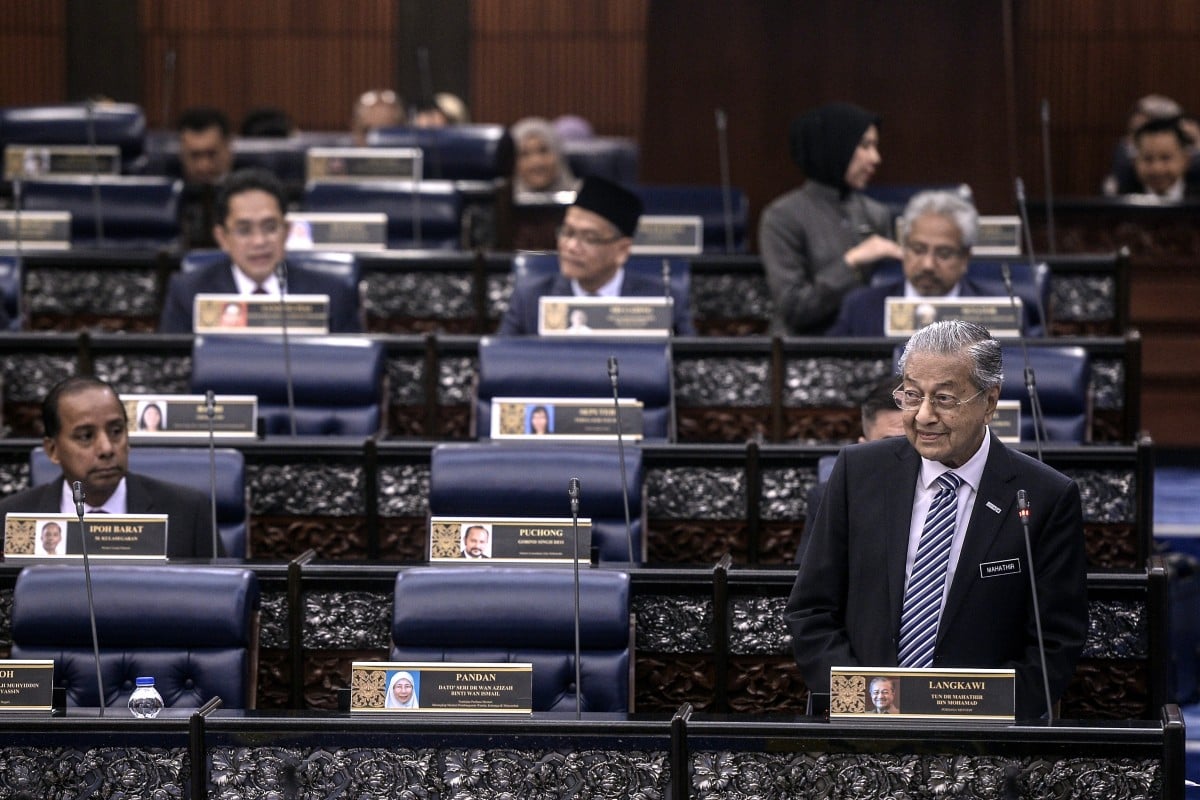
Parliament meets amid fears of ethnic
nationalism and clamour for budget boost...
nationalism and clamour for budget boost...
As the Malaysian parliament opens this week amid public furore over a racially charged forum that was held on Sunday, big questions over the nation’s coming budget and a slew of other key bills will dominate the two-month meeting.
Top of the agenda is the 2020 budget to be tabled on Friday that is being seen as a forerunner to the country’s 12th Malaysia Plan – a five-year development blueprint to be launched next year premised on the new government’s Shared Prosperity initiative, which aims to minimise inequality and bolster inclusive growth.
Analysts expect a business-friendly, pro-growth budget and discussions about a potential reinstatement of the Goods and Services Tax, which was scrapped last year after the Pakatan Harapan coalition took power and replaced it with the Sales and Service Tax.
“The government must be both pragmatic and strategic in crafting the 2020 budget, being the final year of the 11th Malaysia Plan, which is aiming to change gears and put Malaysia on a fast-forward mode to spur economic growth, increase investment, create jobs and expand socio-economic development,” said Socio-Economic Research Centre executive director Lee Heng Guie, who estimated a deficit of 3.2 per cent for 2020.
“We expect the budget will lay down key thrusts to strengthen economic resilience, sustain domestic spending and investment, save jobs, create jobs and help viable companies stay afloat. It also prepares Malaysia to emerge stronger and enhance our enterprise and worker capabilities and competitiveness for the long term.”
At a briefing over the weekend, government parliamentarians discussed projects put in place during the last year, although it was understood that outcomes or impact assessments were not raised. A rising cost of living and flagging economy are among the ruling coalition’s chief concerns.

As the Malaysian parliament opens this week amid public furore over a racially charged forum that was held on Sunday, big questions over the nation’s coming budget and a slew of other key bills will dominate the two-month meeting.
Top of the agenda is the 2020 budget to be tabled on Friday that is being seen as a forerunner to the country’s 12th Malaysia Plan – a five-year development blueprint to be launched next year premised on the new government’s Shared Prosperity initiative, which aims to minimise inequality and bolster inclusive growth.
Analysts expect a business-friendly, pro-growth budget and discussions about a potential reinstatement of the Goods and Services Tax, which was scrapped last year after the Pakatan Harapan coalition took power and replaced it with the Sales and Service Tax.
“The government must be both pragmatic and strategic in crafting the 2020 budget, being the final year of the 11th Malaysia Plan, which is aiming to change gears and put Malaysia on a fast-forward mode to spur economic growth, increase investment, create jobs and expand socio-economic development,” said Socio-Economic Research Centre executive director Lee Heng Guie, who estimated a deficit of 3.2 per cent for 2020.
“We expect the budget will lay down key thrusts to strengthen economic resilience, sustain domestic spending and investment, save jobs, create jobs and help viable companies stay afloat. It also prepares Malaysia to emerge stronger and enhance our enterprise and worker capabilities and competitiveness for the long term.” At a briefing over the weekend, government parliamentarians discussed projects put in place during the last year, although it was understood that outcomes or impact assessments were not raised.
A rising cost of living and flagging economy are among the ruling coalition’s chief concerns.
Malaysia’s cunning plan for start-up dominance: if you can’t beat them, own them
Meanwhile the largest vote bank – ethnic Malays who make up more than 60 per cent of the nation’s population – are questioning whether the new government is effectively safeguarding affirmative action privileges guaranteed in the constitution, which include preferential access to education, land reserves, and civil service entry quotas.
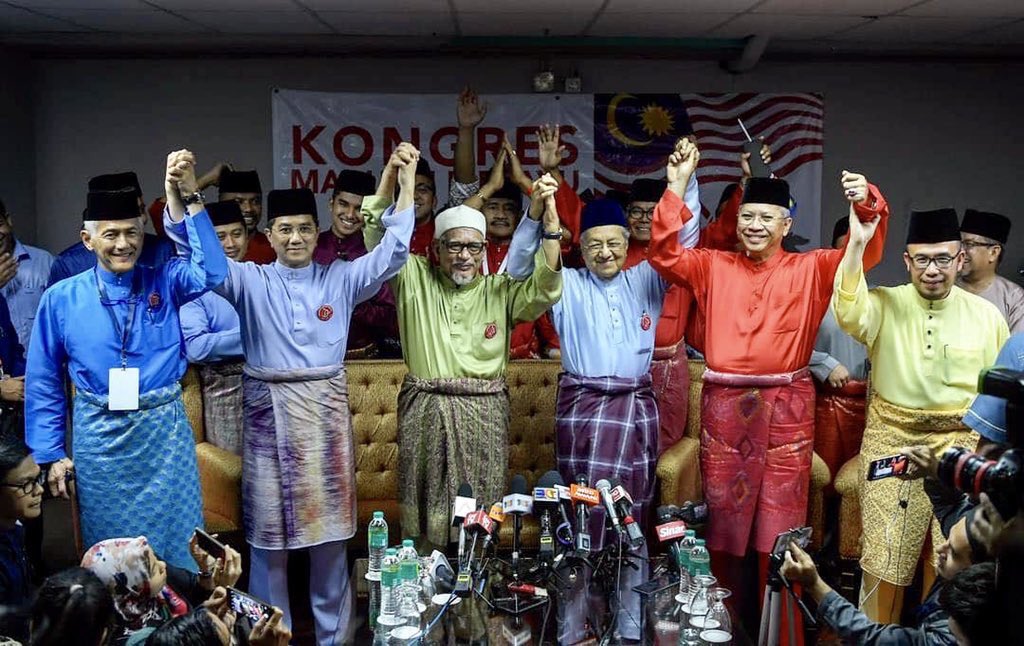
The forum put forward five racially contentious demands, including that top civil service positions be reserved for Malays, and constitutionally protected Chinese or Tamil-language schools be shut down. Prime Minister Mahathir Mohamad, who also spoke at the event, said Malays had failed to make progress due to their reluctance to “do certain jobs”. He warned that the group would continue to be left behind if they refused to work hard and instead relied on hand-outs.
The government had to take into account the feelings of other ethnic groups, he said. The 94-year-old leader added that political infighting within the Malay community had cost them power and forced them to rely on others. He also said that while the congress’ demands would be looked into, “it doesn’t mean the government has to accept the demands”.
Mahathir, who was also prime minister from 1981 to 2003, has long exhorted the community to take control of their own fate, but has promoted the affirmative action policies to reduce socio-economic inequality in relation to other races in Malaysia, which include ethnic Chinese and Indians.
Recently however, his comments have been met with more hostility following fierce pushback from the country’s new opposition – a partnership between the United Malays National Organisation (Umno) and the Pan-Malaysian Islamic Party (PAS), which has positioned itself as a champion of Malay-Muslim rights. Mahathir’s remarks at the Malay Dignity Congress were made a day after he delivered an address on the government’s Shared Prosperity mandate in which he pledged to increase the incomes of all Malaysians, improve their standard of living and end corruption.
Other government lawmakers have criticised the congress’ organisers. Cabinet minister Darell Leiking said he was “disgusted” by the event, while Penang state’s second deputy chief minister P. Ramasamy warned that a relentless push towards ethnic nationalism “might end up in fascism”. These developments, said political scientist James Chin of the University of Tasmania’s Asia Institute, pointed towards an expansionary budget as the government struggles to gain ground among the Malay voter base.
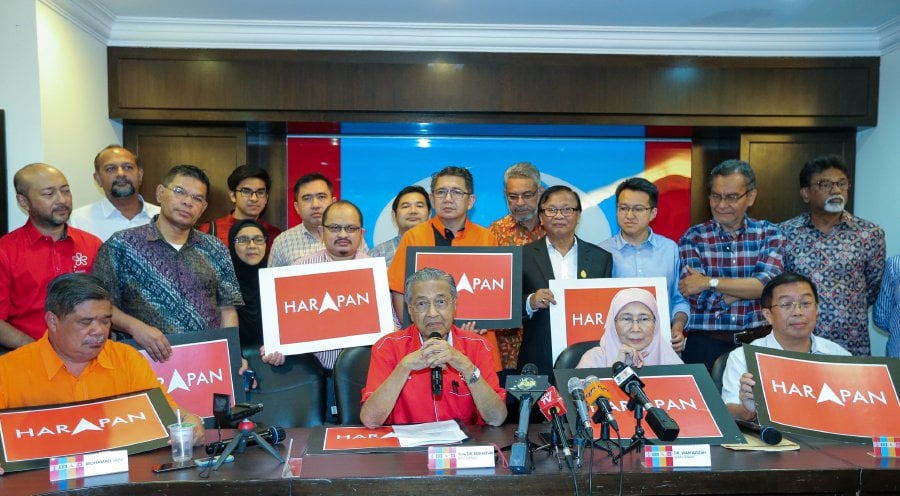
Last year Pakatan Harapan managed to form a government with less than 30 per cent of the Malay vote, while 95 per cent of the country’s voters of Chinese descent were reported to have backed the coalition. Within Pakatan Harapan, Mahathir’s Malaysian United Indigenous Party (Bersatu) and the National Trust Party (Amanah) have struggled to retain relevance with Malay voters who view the government’s multiracial approach with scepticism.
“If they don’t spend, especially in rural areas, then it will strengthen the opposition’s stance that the Malays are being marginalised, especially by majority-Chinese parties in government. They must buy the Malay ground,” Chin said of the coming budget.
This parliamentary meeting will also see a debate on the Independent Police Complaints and Misconduct Commission Bill, as well as a second attempt to repeal the controversial Anti-Fake News Act which was rejected by the Upper House last year. The National Defence White Paper is on the agenda and lawmakers will also table the Political Funding Bill.
The latter, if passed, will join a host of anti-corruption measures launched by the government since it came to power last year in landmark elections in which the former Umno-led administration was toppled after more than six decades in power. Umno’s electoral loss was followed by a corruption crackdown and scores of arrests, including that of former prime minister Najib Razak, who is now on trial over multiple charges of graft and abuse of power, many linked to the 1Malaysia Development Berhad global financial scandal that saw billions siphoned from a sovereign wealth fund.
On the back-burner for the legislative agenda is the now oft-repeated refrain of when democracy icon and prime minister-in-waiting Anwar Ibrahim will take over as leader from Mahathir. A grandee of Anwar’s People’s Justice Party said in an interview published on Monday that if Mahathir, a former Umno member, was “a leader with honour”, he should “immediately retire and hand over power to Anwar, who is 22 years younger, to take on the task of rebuilding this country”.
Mahathir’s position as prime minister was agreed on by the Pakatan Harapan coalition on the condition that he would make way for his former right-hand man, Anwar. Mahathir has indicated this power transition will take place within a two-year period. - scmp
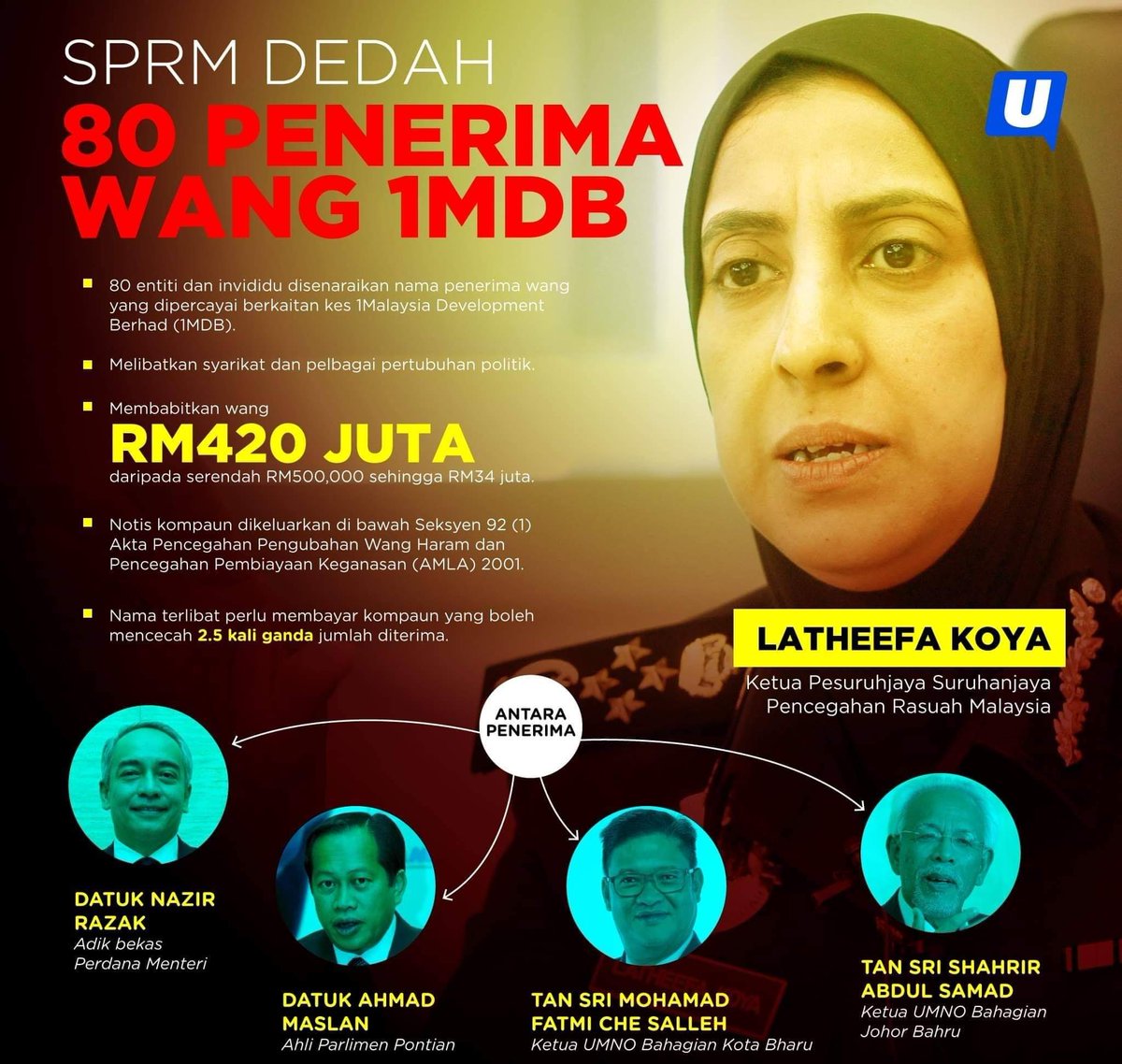

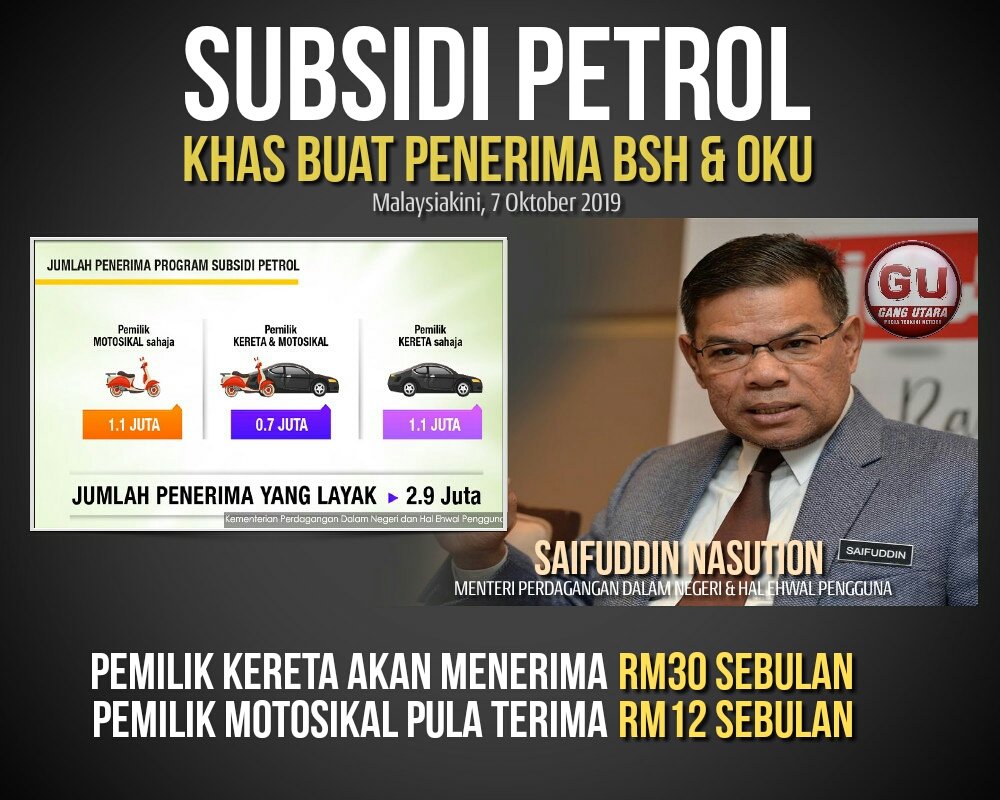




No comments:
Post a Comment